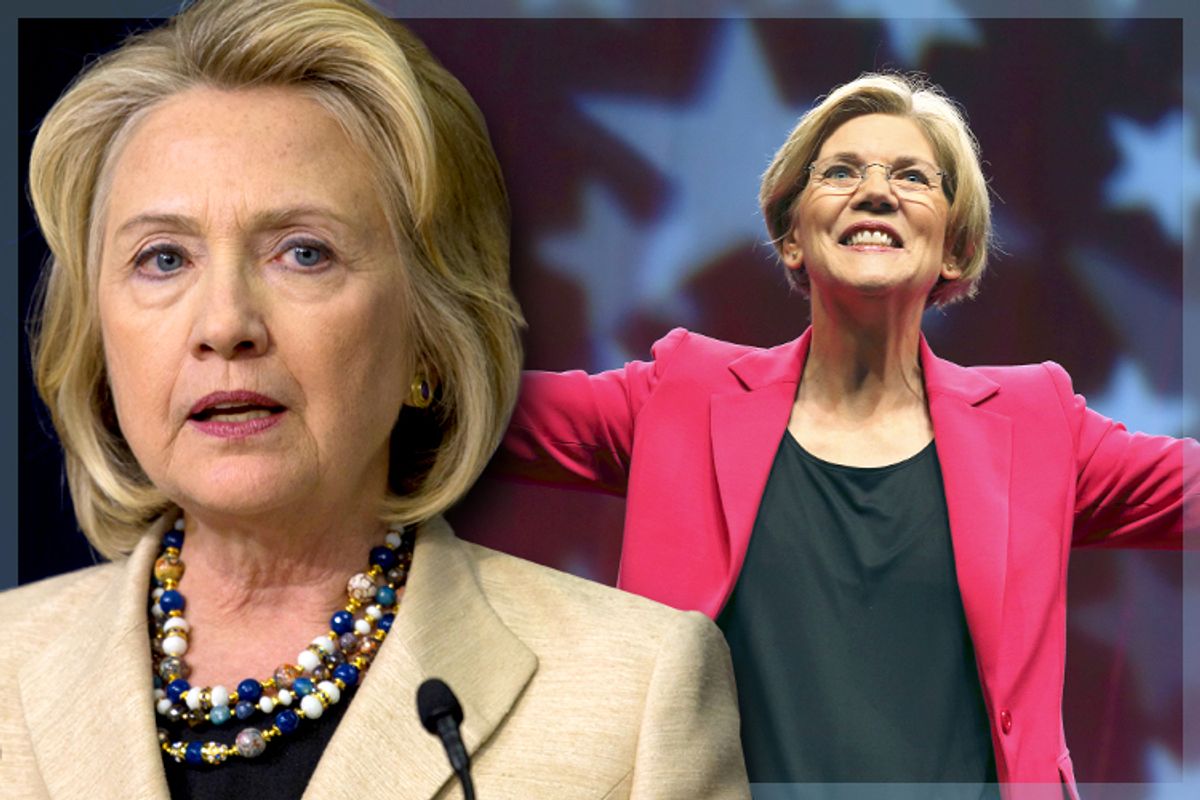Hillary Clinton has a trust problem. Sixty percent of American voters – the highest number among candidates running for president – say she is not honest and trustworthy, according to a Quinnipiac University poll in November.
Her cozy ties to a vast network of wealthy donors who have raised more than $3 billion in support of the Clintons' political and philanthropic efforts over four decades have made Americans question whether she is fighting for us or for the large campaign donors supporting her.
She is not helping her cause by repeating an illogical and self-serving talking point referencing 9/11 to defend against charges that she is too close to Wall Street.
When debate moderators asked if the millions of dollars in campaign contributions and speaking fees from Wall Street make her too indebted to financial interests, she replied, “We were attacked in downtown Manhattan where Wall Street is. I did spend a whole lot of time and effort helping them rebuild.”
But there’s a better answer staring her in the face! It’s the first issue listed on her website: Campaign finance reform.
Building trust with Americans starts with championing a real plan to fight big money in politics and ensure Americans on Main Street have just as much voice on Capitol Hill and in the White House as the financiers on Wall Street.
Clinton has such a plan but it’s just been picking up dust on the shelf since she released it back in September.
Her Proposals to Restore Integrity to American Elections garnered widespread praise from leading campaign finance reform advocates, including the organization where I work. Her proposed solutions, as well as those of Bernie Sanders and Martin O'Malley, closely resemble a comprehensive reform agenda released by Democracy Matters and 11 other national organizations working to reduce the pervasive influence of big money in our elections.
The holistic plan recognizes that no one solution will fully rebalance the system in favor of voters instead of wealthy donors, but rather we must take simultaneous action on several fronts. We must amplify the voices of everyday Americans in the political process by implementing public financing of elections that encourage more small donors to participate. We must also overturn disastrous Supreme Court decisions like Citizens United v. FEC and Buckley v. Valeo, which limit our ability to prevent big donors from buying special influence. And we must protect the public's right to know who is spending money to influence our elected officials by "ending secret, unaccountable money" in elections.
Without question there’s a lot to like in Clinton’s plan to fight big money, but just releasing a white paper and then rarely, if ever, mentioning it again does not inspire confidence that a President Clinton would forcefully advocate for the plan.
She should use every opportunity to trumpet her plan to rein in big money not only because it is good policy, but also because it’s a political winner. In a survey by the Wall Street Journal and NBC News, respondents cited the sway that companies and wealthy individuals may have over the outcome as their top concern for the 2016 elections. A recent New York Times/CBS news poll found that 85 percent of Americans support fundamentally changing or completely rebuilding the system for funding elections. Longtime Democratic pollster Stan Greenberg argues that a platform advancing solutions to money in politics so government works for the middle class is key to electoral success for Democrats in 2016.
Clinton’s options are clear: repeat failed talking points in the face of accusations that she is Wall Street’s favored candidate and continue to lose the public’s trust; or run convincingly on what the experts agree is a solid platform to lessen the political influence of big banks, big oil, and every other industry trying to exchange campaign contributions for special favors from government.
Only the latter will chip away at her untrustworthy reputation and galvanize the movement to actually achieve Clinton’s goal of restoring integrity to American elections.

Shares